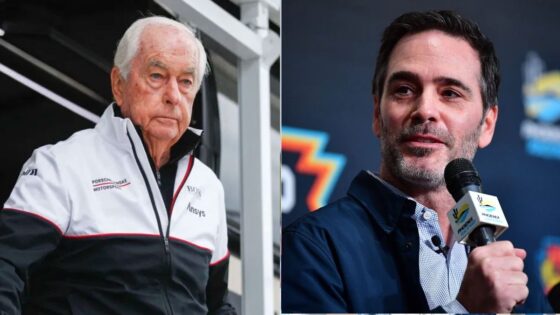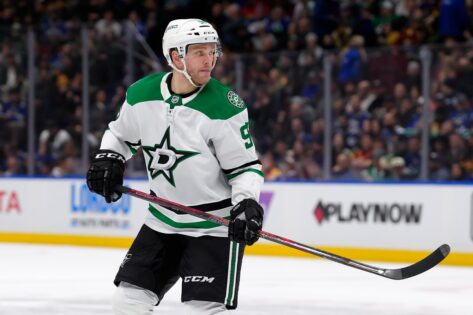Way back in the 1940s, stock car racing was a crazy, dirty fantasy—bootleggers running up-and-down dirt tracks, no rules, no promise. Then, Bill France Sr. came along, a mechanic with an insane dream. France was the greatest entrepreneur you never knew, taking chaos and transforming it into NASCAR through sheer nerve. He stood up to skeptics, brought racers together, and constructed Daytona out of nothing, staking everything on a sport nobody had faith in. He saw what could be, and that flame still burns at NASCAR today. Now, here‘s Jimmie Johnson, a seven-time champion turned owner, battling a new fight—proving the sport‘s no money bubble.
Let’s dive into a question that’s been rattling around the NASCAR world: Is the sport just a financial bubble, puffed up by big money but ready to burst? Sponsor dollars are shrinking, teams are fighting to break even, and asset prices are soaring thanks to cash from wealthy families and private equity. It‘s a difficult scene, and it‘s easy to question whether the returns are worth the hype. But then Jimmie Johnson, the driver turned team owner, enters with a twinkle in his eye and a tale that turns the narrative on its head. He‘s not only defending NASCAR—he‘s referencing Roger Penske‘s brilliance as evidence there‘s genuine gold here.
Jimmie Johnson is betting on the financial stability of NASCAR
The numbers don‘t lie. A Forbes piece in August 2024 revealed that NASCAR generated $425.06 million in sponsor revenue in 2023, while as of August 2024, it had generated $362.34 million, nearly a 16% drop. It’s understandable why people would label it a financial bubble—money is coming in, but the checks aren‘t always breaking even. Nevertheless, Johnson, now at the helm of Legacy Motor Club, is unfazed. He‘s seen the series from all sides, and he‘s counting on one where savvy decisions flip the script. He’s not following the old playbook—he’s rewriting it, inspired by titans like Penske and Rick Hendrick. Johnson’s passion came through loud and clear when he tackled the financial bubble talk head-on.
Johnson added his thoughts on the Business of Sports podcast, “I believe it is [a good financial asset], and I think it takes someone to understand the sport and be in it and to understand the tentacles, and a great example would be either Roger Penske or Rick Hendrick,” Johnson shared. “Both of them have massive auto conglomerates, and when you look at their race cars on track, you know one has Pennzoil lubricants on it on track well Mr. Penske makes sure that every auto center that he has around the world sells Pennzoil, and then in exchange for that the car is paid for. So they’re creative b2b opportunities that really make sense and generate the opportunity. But outside of that, that’s the way this deal is transacted for so long. It is now on a point, though, where if you have a nice commercial offering and you have assets and you’re willing to build a brand, I do believe there’s real profitability.”
That‘s the essence of it—Penske‘s not racing; he‘s creating an empire. An interview with Jeff Haden for Inc.com in 2016 lifted the veil off of “The Captain.” With a loan from his father, Penske transformed one Chevrolet dealership into a $26 billion goliath—325+ automobile dealerships, a truck leasing company with 240,000 units, and a race team with more than 400 victories and 29 championships, including 16 Indy 500s.
He‘s a detail-man, still enjoying the rush of watching a shiny Penske truck drive by, looking for logos and dents. He‘s a hands-on manager, making visits to franchisees, talking to service crews, and staying on the street. And failure? He welcomes it. Roger Penske once said, “If you’re not in an environment where you might fail, you really don’t have a job.“ Winning fewer races than he loses taught him to learn, to adapt, and to return the stronger for it. “It is how you respond from failure and how you use that to improve across the board that can ultimately make a difference on the scoreboard,” he told Jeff Haden in 2016.
Penske‘s B2B wizardry, such as aligning Pennzoil with his worldwide network, demonstrates the way racing invigorates his wider business. Autoweek is ready to crown him the “big dog“ if he gets his fourth consecutive Cup crown in 2025 and connects his $46 billion Penske Corp to partnerships such as Volkswagen‘s push in the United States. Rick Hendrick is no slack either, with 312 Cup victories and NAPA Auto Parts as an insurance policy. Johnson‘s going for that blueprint—astute alliances, branding, and an outfit that is young, starved, and on the edge.
Jimmie Johnson kept going, his excitement building. “I think that our team [Legacy Motor Club] is one of two young teams with young owners that are really trying to push that. It’s fun to be on that cutting edge. And the more we talk about it, the more interest there is out there. And they can see this vision and grasp it and understand it, and they have tentacles in the sport everywhere and there’s the snowball is starting to roll for us.”
Legacy Motor Club was formed from the ashes of a declining Richard Petty Motorsports, which was taken over by Johnson in 2022. Since then, the rebranding to Legacy Motor Club was the first step in his broader vision of transforming the team. While the results on track have left much to be desired, with just one win in 243 races since 2022, Johnson’s vision is much more than that. He strives to build an empire like Penske’s, and failure is always the first step to success.
So, bubble or not? Jimmie Johnson says no—it’s a grind with a payoff for those who get it. Penske’s proof: a titan who’s turned racing into a sustainable, profitable beast. As Legacy Motor Club’s momentum picks up, let’s see where this ride takes us.
The post Jimmie Johnson Shuts Down ‘Financial Bubble’ Accusations on NASCAR as He Unmasks Roger Penske’s Strategic Brilliance appeared first on EssentiallySports.



